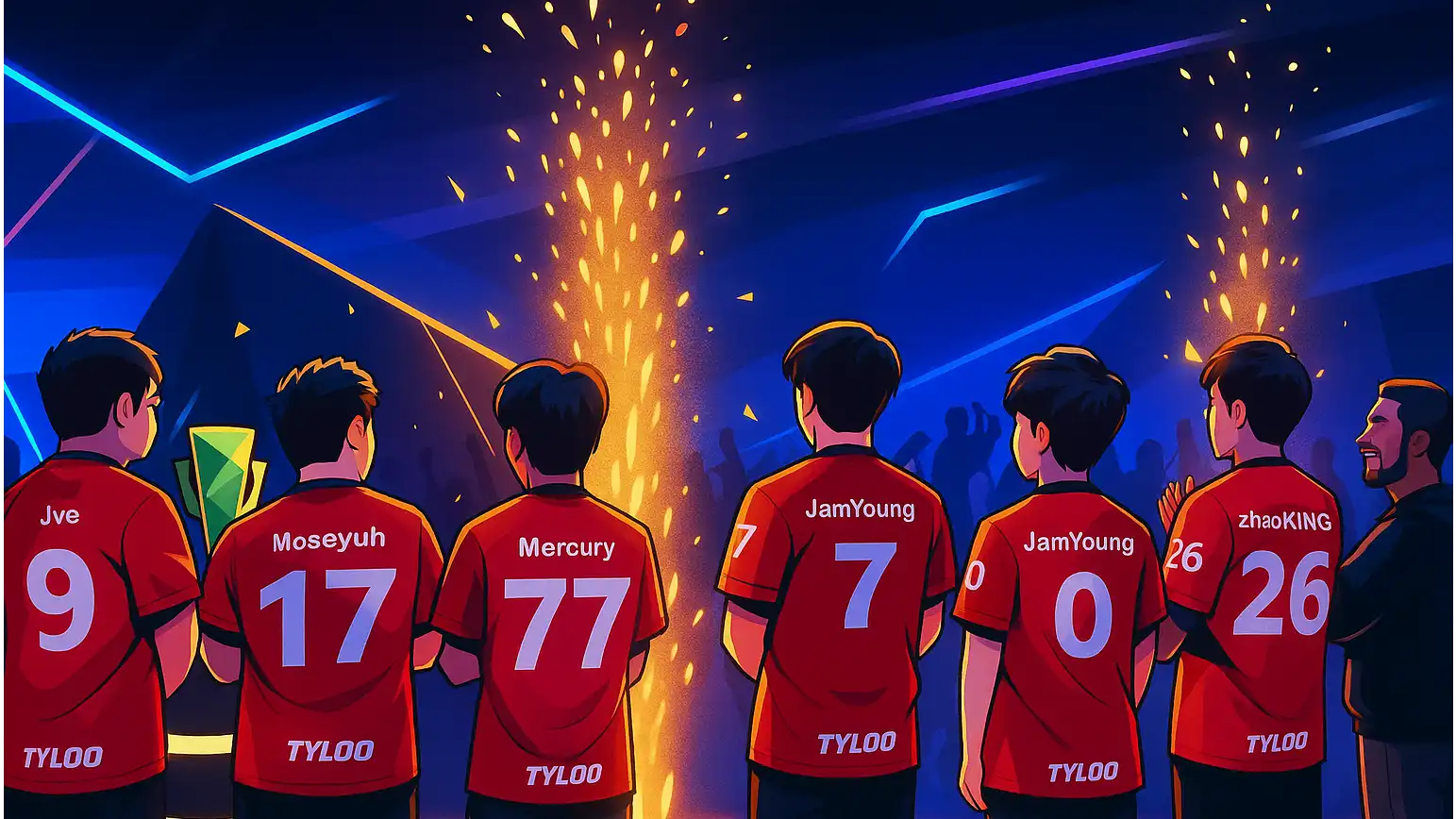paiN send TYLOO packing at BLAST Rivals

paiN send TYLOO packing at BLAST Rivals
Brazilian squad paiN have booked their spot in the quarter-finals of BLAST Rivals Season 2 after a 2-1 victory over Chinese team TYLOO, sealing elimination for the latter and ending their hopes at the Hong Kong event.
Match breakdown & key moments
Map 1: Nuke (paiN pick) – 13-7
paiN came out strong on their pick of Nuke, racing to an 8-4 lead by halftime and never letting TYLOO mount a serious response. According to match statistics, paiN secured the map after a 4-0 run early in the second half, helped by aggressive play-calling and a clean pistol round win with upgraded weaponry (including a P250 and Scout) that broke TYLOO’s rhythm. TYLOO’s lone spark was Yi “JamYoung” Yang, who posted the most kills for his team, but the collective execution was not enough.
Map 2: Ancient (TYLOO pick) – 9-13
On their own map pick, TYLOO responded in kind. After a sluggish T-side start with only four rounds, they found form on the CT side where AWPers Dongkai “Jee” Ji and Jingxiang “Mercury” Wang paired up to dominate. Jee in particular warmed up from just one kill on map 1 to an impactful presence here, and TYLOO took the map convincingly to force a decider.
Map 3: Overpass (Decider) – 13-10
The final showdown on Overpass followed the same script: TYLOO fell behind early, trailing 10-2 after the first half on the T side. YuanZhang “Attacker” Sheng suffered a brutal opening statistical line with six opening deaths, while paiN flew ahead thanks to strong CT halves and a critical clutch from João “snow” Vinícius, who secured a 1-vs-2 in the late game to seal the deal. TYLOO’s Jee missed crucial AWP shots in the closing rounds and the Chinese unit could not recover.
The win advances paiN into the playoff bracket, while TYLOO’s journey at Rivals ends—marking yet another departure from the event for the Asian side.
Tactical takeaways & narratives
paiN’s resurgence:
After a lacklustre fall season and a post-Major slump, paiN entered Rivals with something to prove. Their performance here demonstrated improved discipline, especially on CT sides of Nuke and Overpass. The team looked more cohesive, and younger players like snow appear to be embracing expanded roles. As he noted post-match: “I like to be very active… we are on the way to being a very good team.”
TYLOO’s unfulfilled promise:
TYLOO entered the event with high hopes—especially playing in front of a home region crowd in Hong Kong—but once again their run ended before the deep playoff rounds. Their earlier 5-vs-2 advantage slip on day one has drawn criticism and this defeat underscores recurring issues: poor T-side starts, inability to grind out momentum when behind, and over-reliance on individuals to bail them out. “We didn’t play well the whole tournament. I’m really sad and upset,” said Qianhao “Moseyuh” Chen after elimination.
Role of map dynamics:
The map pool—Nuke, Ancient, Overpass—favoured paiN’s strengths. On Nuke and Overpass they displayed textbook executions and stifled TYLOO’s T-side entry attempts. On Ancient, while TYLOO showed bright flashes, paiN’s early deficit proved too steep. The narrative: take control early or you risk elimination. TYLOO’s 2nd map win hinted at potential, but the collapse on map 3 echoes pattern rather than anomaly.
What this means going forward
For paiN, a successful entry into the playoff bracket at Rivals gives critical momentum ahead of upcoming events and the Major-season grind. Confidence is growing and their roster appears less predictable, which makes them a threat rather than a footnote. Meanwhile, TYLOO must reassess: home-region advantage evaporated, and failing to build consistency under pressure remains headline fodder.
This match also illustrates the depth of competition at Rivals: eight elite teams, $350 000 prize pool, and plenty of narrative arcs already forming. The format emphasises elimination pressure early and demands teams lock in fast or face departure—TYLOO’s exit demonstrates both.
Final word: paiN’s composed performance, particularly in response to previous instability, suggests they’re trending upward. TYLOO’s exit may feel disappointing but the loss holds lessons: slow T-starts cost on Overpass, and talent without systemic consistency is unreliable in high-stakes LANs. As Rivals barrels ahead, this match will be remembered as one where one team revived hope, the other saw its home-region comfort evaporate.





